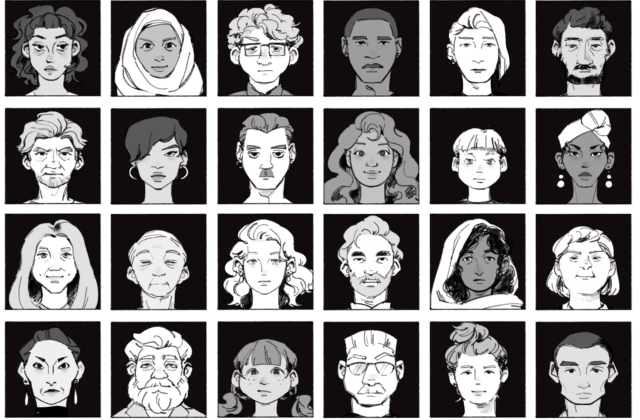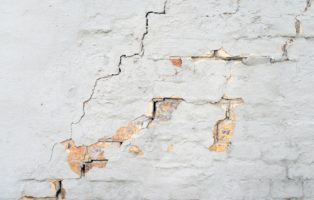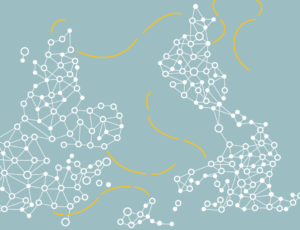
The Unmaking of Medical Inadmissibility
NIAS Talk
About the programme
This is the world premiere of the film The Unmaking of Medical Inadmissibility, written and directed by NIAS fellow, Laura Bisaillon. In this 20-minute film in animatic form, Bisaillon unfolds experiences that people with chronic illness and developmental or genetic otherness have with the Canadian immigration system as they apply for permanent residency.
Federal Canadian immigration law excludes people with chronic illness and developmental or genetic difference from permanently settling on health grounds, referred to as medical inadmissibility, with some exceptions. Medical inadmissibility is a state decision-making process involving official practices organized to detect, diagnose, and exclude such persons because of assumptions made about them.
A panel discussion and engagement with the public follows the screening.
About the film
'The movie is very powerful and effective. The use of animation is so clever in drawing the viewer in aesthetically and emotionally. But also, the variety in the style of animation, and how each style and “look” is used in the film, really contribute to emphasizing the underlying themes you are advancing. (Lawyer, Ministry of the Attorney General of Ontario, Canada)
This documentary film is about Martha, Winnie, Stella and Yvonne who, as people wanting to immigrate to Canada, are struggling to deal with having been denied. State bureaucrats have deemed them to be social, legal and health risks. How would you feel about being discredited, singled out, disproportionately probed, and rendered ‘medically inadmissible’ on the basis of your bodily status? Produced by The Inadmissibles Collective, this film, and its accompanying 14 digital illustrations, were completed through grants from the Canadian Bar Association’s Law for the Future Fund and the Jackman Humanities Institute’s Scholars-in-Residence Program. Written and directed by Laura Bisaillon, the film was storyboarded, animated and illustrated by Ujwal Mantha, Tania Montoya, Aida Radoncic, Ze Xi Ye, Zihan Yi and Ke Er Zhang. More information available here.
About the speakers:
Laura Bisaillon is Assistant Professor of Health and Society at the University of Toronto Scarborough. During her fellowship at NIAS 2020/21, Bisaillon produces an ethnography starting within the circumstances and aftermath of exclusion for would-be immigrants in Canada.
Kristine Krause is an anthropologist (University of Amsterdam) working at the intersections of political and medical anthropology, interested in subjectivities and health, citizenship, and care. Krause was NIAS fellow in the year group 2019/20, where she worked on the book project Care in the city. Multiple Articulations of Care and Healing.
Emy Koopman is a writer, researcher, and journalist. This autumn her five-part series ‘Paradijs Canada’ was broadcasted by VPRO. Amongst others, Koopman’s articles are featured in De Groene Amsterdammer, hard//hoofd, and De Correspondent.
Zará Kars will moderate this NIAS Talk. Kars is a public historian and works as Event Manager at NIAS.
-
 Fellow
FellowKrause, Kristine
-

-

-
